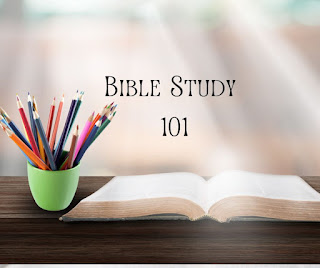Psalm 1 (NASB)
"How blessed is the man who does
not walk
in the counsel of the wicked,
Nor stand
in the path of sinners,
Nor sit
in the seat of scoffers!
But his delight is
in the law of the LORD,
And in His law
he meditates day and night.
He will be like a tree
firmly planted
by streams of water,
Which yields its fruit
in its season
And its leaf does
not wither;
And in whatever he does,
he prospers.
The wicked are not so,
But they are like chaff
which the wind drives away.
Therefore the wicked
will not stand in the judgment,
Nor sinners
in the assembly of the righteous.
For the LORD
knows the way of the righteous,
But the way of the wicked
will perish."
The Bible is our book of answers.
What answers do you find to the following questions?
Consider this cross-reference about water. When Jesus met a woman who came to a well to draw water, this is what He had to say about water.
John 4:10,11. (NASB) "Jesus answered and said to her, 'If you knew the gift of God, and who it is who says to you, ‘Give Me a drink,’ you would have asked Him, and He would have given you living water.
”She *said to Him, “Sir, You have nothing to draw with and the well is deep; where then do You get that living water?
13,14 Jesus answered and said to her, “Everyone who drinks of this water will thirst again; but whoever drinks of the water that I will give him shall never thirst; but the water that I will give him will become in him a well of water springing up to eternal life.”
Study questions -
Start from the last verse and build a list of comparisons between these two groups (wicked and righteous) and the relationship to a sturdy well-watered tree and a plant whose leaves are dried and blown away by the wind.
Wicked
What happens to the way of the wicked?
Will sinners (those who continue in sin) remain standing in the judgment?
What will happen to the wicked (dry leaves) when the wind blows?
Righteous
Remember they are planted by streams of water. Even in dry/hard seasons when others might wither, what happens to the leaves of the righteous?
When the righteous are following God's will for their lives, what fruit will they see?
Do you see a significance in the contrast between the righteous being firmly planted as opposed to the wicked being blown away by the wind?
How often does a righteous person dwell/meditate on the Law of God, the Bible?
Is it (studying/meditating on the Word of God) a chore for him or something he enjoys?
Where will you NOT find a righteous person
walking?
standing?
sitting?
Considering the cross-reference from John, what is the ultimate blessing mentioned in the first line of the Psalm?
Looking at the Psalm as a whole, why does God supply us with this living water?
What/Who is our source of living water?
Do you see a lesson about staying firmly planted in the Word of God rather than moving to different waters (empty religions) and remaining a sapling, not nourished by the river of life? What happened to the leaves of the wicked?
Additional thoughts to consider. You might have heard of the Dead Sea. It's a deep salt lake, where water doesn't flow. Its high salt level makes it unsuitable for most plant or animal life. While the salt is used for various purposes, the water is considered dead.
How does this compare to the fresh, living water where trees take root and grow? What does salt do to most plants?
Click here to see the video and hear an audio of this Psalm.
.jpg)
.jpg)


.jpg)

.jpg)
.jpg)

.jpg)
